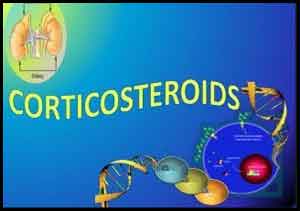- Home
- Editorial
- News
- Practice Guidelines
- Anesthesiology Guidelines
- Cancer Guidelines
- Cardiac Sciences Guidelines
- Critical Care Guidelines
- Dentistry Guidelines
- Dermatology Guidelines
- Diabetes and Endo Guidelines
- Diagnostics Guidelines
- ENT Guidelines
- Featured Practice Guidelines
- Gastroenterology Guidelines
- Geriatrics Guidelines
- Medicine Guidelines
- Nephrology Guidelines
- Neurosciences Guidelines
- Obs and Gynae Guidelines
- Ophthalmology Guidelines
- Orthopaedics Guidelines
- Paediatrics Guidelines
- Psychiatry Guidelines
- Pulmonology Guidelines
- Radiology Guidelines
- Surgery Guidelines
- Urology Guidelines
Long-term use of topical Steroids may lead to withdrawal effects

Patients with a history of long-term topical corticosteroid (TCS) overuse may experience topical steroid withdrawal (TSW) symptoms on stopping topical corticosteroids, reports a new study published in the journal Dermatitis.
Topical steroids are the most commonly prescribed topical medications for the treatment of rash, eczema, and dermatitis. Topical steroids have anti-inflammatory properties and are classified based on their skin vasoconstrictive abilities.
Sheary B and his associates conducted a retrospective cohort study to examine the demographics and outcomes in adult patients who believe they are experiencing TSW following discontinuation of chronic TCS overuse. Women represented 56% of the 55 patients included in the study aged 20 to 66 years. Seventy-six percent had an original diagnosis of atopic dermatitis. Sixty percent had used potent TCSs on the face, and 42% had a history of oral corticosteroid use for skin symptoms.
Read Also: Generally avoid Systemic Corticosteroids for Atopic Dermatitis : Expert Group
Key study findings:
- Burning pain was reported in 65% of study participants.
- All had widespread areas of red skin and so-called "elephant wrinkles," "red sleeve," and the “headlight sign” were seen in 56%, 40%, and 29%, respectively.
The author suggested diagnostic criteria, reflecting the histories and examination findings of the patients studied and warrants further research is needed to develop guidelines for withdrawal prevention and management.
Read Also: Extended Corticosteroid use related to increased Adverse effects
In a similar study published earlier in Speciality Medical Dialogues, has stated that extended corticosteroid use can significantly increase the incidence of adverse events compared with intermittent use.
For further reference log on to 0.1097/DER.0000000000000387

Disclaimer: This site is primarily intended for healthcare professionals. Any content/information on this website does not replace the advice of medical and/or health professionals and should not be construed as medical/diagnostic advice/endorsement or prescription. Use of this site is subject to our terms of use, privacy policy, advertisement policy. © 2020 Minerva Medical Treatment Pvt Ltd